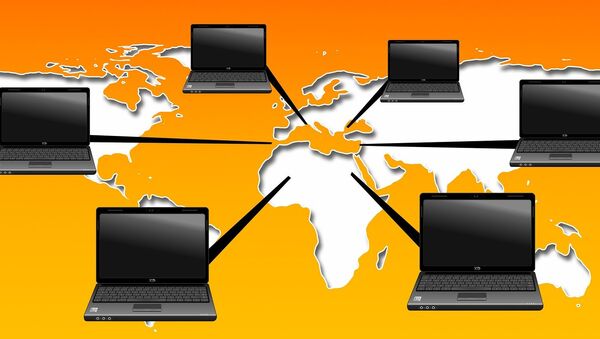Shutdowns vary in execution, from limited blocks on certain social media sites to putting entire towns offline. One of the reasons for shutdowns named by governments is national security.
Julie Owono, head of the Africa desk at Internet Without Borders, told Sputnik that most internet shutdowns have nothing to do with security, but are more politically motivated. One such example is that of the failed coup in Turkey in 2016, after the event users in the country reported repeated blocks on social media sites like Twitter and Facebook.
"From a government point of view a protest is a national security threat but in reality and legally, many of the justifications given did not match the national security argument. In Cameroon for example there is an internet shutdown due to protests, the government want to violate the national security of the people for the sake of persevering their own security. The people are protesting over the vote and the government do not want to recount votes — so we have found that this has been done to preserve the government but not used in the interest of the people," Ms. Owono told Sputnik.
"The right to oppose ideas is a fundamental right. For instance now in Cameroon many of the protesters that gathered in the streets are called terrorists. This is unacceptable in a country that has signed so many agreements — to use national security as an excuse is wrong. It has nothing to do with national security," Ms. Owono added.
Ms. Owono added that the idea is to prevent people from accessing information. Social media has been used in various contexts to offer alternative angles to
Accounts that counter government propaganda and certain websites are critical to access certain information and by shutting down the internet the right for people to organize is stifled, preventing them from accessing important information, according to Ms. Owono.
"Social media is a tool used by people to exercise basic freedoms. It offers people the right to communicate in a different way, so it's obvious the governments will shut it down."
In terms of length, internet shutdowns could last a few hours, however some go on for weeks and months. According to Ms. Owono, the shutdown in Cameroon has lasted for over a month now.
Currently in two western regions south-west and north-west you cannot access the internet at all. But the situation is different as soon as you move back to the capital city. It has been like this since January 2017, Ms. Owono told Sputnik.
Students & businesses frustrated by internet shutdown in Buea. Some forced to travel to Douala for research.#BringBackOurInternet #Cameroon pic.twitter.com/z4IBhdbZVq
— Albert Nchinda (@AlbertNchinda) 2 March 2017
In terms of a solution, Ms. Owno said that states who participate in internet shutdowns have to start understanding the implications on the economy. It is counterproductive economically as the internet is almost like a natural resource.
"The banking organisations can not function or work without stable internet connection. One month after the shutdown it has cost the country US$1 million and that is still a low estimation, so it's counterproductive from a social and political point of view, as well as economically," Ms. Owno told Sputnik.



